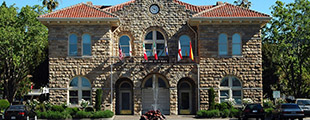-
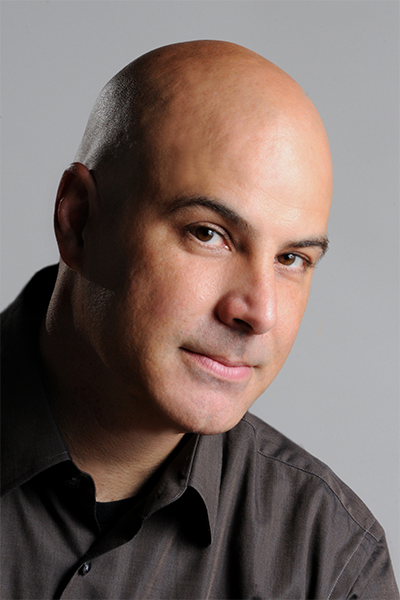
Title: Cosmetic Computing, Fashioning Fashionables, and Epidermal Electronics: Towards a New Wearable Ecosystem Speaker: Eric Paulos
University of California, Berkeley
This talk will present and critique a new body of evolving collaborative work at the intersection of art, computer science, and design research. It will present an argument for hybrid materials, methods, and artifacts as strategic tools for insight and innovation within computing culture. The narrative will explore work across three primary themes – New Making Renaissance, Citizen Science, and Cosmetic Computing.
Cosmetic Computing is a vociferous expression of radical individuality and an opportunity for deviance from binary gender norms. It is a catalyst towards an open, playful, and creative expression of individuality through wearable technologies. It’s a liberation call across gender, race, and body types. Leveraging the term “cosmetics”, originally meaning “technique of dress”, we envision how intentionally designed new-wearables, specifically those that integrate with fashionable materials and overlays applied directly atop the skin or body, can (and should) empower individuals towards novel explorations of body and self-expression. Unlike many modern traditional cosmetics that are culturally laden with prescriptive social norms of required usage that are restrictive, sexually binary, and oppressive, we desire a new attitude and creative engagement with wearable technologies that can empower individuals with a more personal, playful, performative, and meaningful “technique of dress” — Cosmetic Computing.
Biography:
Eric Paulos is the founder and director of the Hybrid Ecologies Lab, an Associate Professor in Electrical Engineering Computer Science Department at UC Berkeley, Director of the CITRIS Invention Lab, Chief Learning Officer for the Jacobs Institute for Design Innovation, a Co-Director of the Swarm Lab, and faculty within the Berkeley Center for New Media (BCNM). Previously, Eric held the Cooper-Siegel Associate Professor Chair in the School of Computer Science at Carnegie Mellon University where he was faculty at the Human-Computer Interaction Institute with courtesy faculty appointments in the Robotics Institute and in the Entertainment Technology Center. Prior to CMU, Eric was Senior Research Scientist at Intel Research in Berkeley, California where he founded the Urban Atmospheres research group. His areas of expertise span a deep body of research territory in wearables, social telepresence, robotics, urban computing, citizen science, digital fabrication, maker culture, new media, design research, physical computing, persuasive technologies, and intimate media. Eric received his Ph.D. in Electrical Engineering and Computer Science from UC Berkeley. Eric is also the founder and director of the Experimental Interaction Unit and a frequent collaborator with Mark Pauline of Survival Research Laboratories. -
ThruMapper: Through-Wall Building Tomography with a Single Mapping Robot
Bo Tan, Kevin Chetty (University College London); Kyle Jamieson (University College London and Princeton University)
-
Extending Cell Tower Coverage through Drones
Ashutosh Dhekne, Mahanth Gowda, Romit Roy Choudhury (UIUC)
-
Noncoherent mmWave Path Tracking
Maryam Eslami Rasekh, Zhinus Marzi, Yanzi Zhu, Upamanyu Madhow, Haitao Zheng (UCSB)
-
Understanding Sensor Notifications on Mobile Devices
Zongheng Ma, Saeed Mirzamohammadi, Ardalan Amiri Sani (University of California, Irvine)
-
Benchmarking Smartphone Performance: Challenges and Future Directions
Yao Guo, Yunnan Xu, Xiangqun Chen (Peking University)
-
Decelerating Suspend and Resume in Operating Systems
Shuang Zhai, Liwei Guo, Xiangyu Li, Felix Xiaozhu Lin (Purdue ECE)
-
Blood Count on a Smartphone Microscope: Challenges
Uma P. Moravapalle (Georgia Tech); Amit Deshpande, Ashish Kapoor, Ramachandran Ramjee (Microsoft Research); Priya Ravi (Atreya Clinic)
-
Telepath: Sensory Offloading for Wearable Devices
Songchun Fan, Qiuyun Llull, Benjamin Lee (Duke University)
-
I am a "Smart"watch, Smart Enough to Know the Accuracy of My Own Heart Rate Sensor
Ho-Kyeong Ra (DGIST); Jungmo Ahn (Ajou University); Hee Jung Yoon (DGIST); Dukyong Yoon (Ajou University School of Medicine); Sang Hyuk Son (DGIST); JeongGil Ko (Ajou University)
-
Empath-D: Empathetic Design for Accessibility
Kenny Tsu Wei Choo, Rajesh Krishna Balan, Jagmohan Chauhan, Tan Kiat Wee, Archan Misra, Youngki Lee (Singapore Management University)
-
Dissecting the End-to-end Latency of Interactive Mobile Video Applications
Teemu Kämäräinen, Matti Siekkinen, Antti Ylä-Jääski (Aalto University); Wenxiao Zhang, Pan Hui (The Hong Kong University of Science and Technology)
-
Augmented Vehicular Reality: Enabling Extended Vision for Future Vehicles
Hang Qiu, Fawad Ahmad, Ramesh Govindan (University of Southern California); Marco Gruteser (Rutgers University); Fan Bai (General Motor R&D); Gorkem Kar (Rutgers University)
-

Title: Gorilla Mobile Speaker: Peter D Walsh
University of Cambridge and Apes Incorportated
Wild gorillas are screwed. Beset by an unholy trinity of commercial bushmeat hunting, habitat loss, and diseases like Ebola, gorilla populations are in free fall. Traditional conservation approaches are failing miserably but a passionate but a technophobic ape conservation community is unwilling or unable to adopt the only hope: the same combination of technological innovation and evidence based decision–making that has so transformed other aspects of modern life. My life-mission is to drag them kicking and screaming into this modern technological world: to act as a sort of start-up that tests new technological solutions to major ape conservation problems. My talk at HotMobile will focus primarily on my efforts to use mobile technologies to transform what are currently deeply unprofitable gorilla tourism programs into profitable business enterprises. I will talk both about the use of wearable tech and drones to habituate gorillas for tourism and broader efforts to create a “wireless park” using technologies like live video streaming to handheld devices to enhance the tourist experience: to expand the gorilla tourism market by making it attractive to geeks like you. I will also touch briefly on my efforts to apply mobile technologies in other aspects of gorilla conservation, including ape vaccination against Ebola virus and population monitoring. I am actively recruiting partners.
Biography:
Peter Walsh is a world expert on both the conservation gorillas and chimpanzees and the reservoir dynamics of Ebola virus. His research is published in leading journals like Science and Nature and covered regularly in the media, including profiles by PBS, the BBC, NPR, the New York Times, and Time. He led the study showing that almost one third of the world gorilla population had been killed by Ebola virus, the report raising the IUCN “Red List” status of western gorillas to Critically Endangered, the first scientific vaccination trial on wild apes, the first conservation-related vaccine trial on captive chimpanzees, and first oral Ebola vaccine trial on chimpanzees. His earlier conservation efforts included design work on the CITES elephant monitoring system, the first scientific surveys of whales in West African waters, the first study of invasive fire ants in Africa, and first meso-scale simulation modelling of climate in African parks. He also originated the wave spread hypothesis for Ebola reservoir dynamics and collaborated on the first molecular analysis of human virus spillover into wild apes, the first study of the effects of tourism on gorilla stress, the first study on invasive fire ants in Africa, and the study identifying gorillas as the source of human malaria. He has also modelled the evolutionary origins of human search in the foraging behaviour of apes and elephants. Peter’s outside-the-box-perspective on ape conservation stems from a unique blend of natural science technical skills, social science training, and on-the-ground experience. He started with a BA in History from Middlebury College, with coursework in Politics and Economics. During PhD studies in Biology at Yale University he turned to the dark side, immersing himself in the black arts (mathematical modelling, statistics, computer programming and molecular biology). He then lived for more than five years in Gabon, Republic of Congo, Central African Republic, and Cameroon applying his technical skills to applied wildlife conservation and basic scientific research as a postdoctoral fellow at the Wildlife Conservation Society (WCS) and the American Museum of Natural History, a Conservation Ecologist at WCS, an Adjunct Assistant Professor at Princeton University, and a Group Leader at the Max Planck Institute for Evolutionary Anthropology. He is currently a lecturer in the Department of Archaeology and Anthropology at the University of Cambridge. -
Convoy: Physical Context Verification for Vehicle Platoon Admission
Jun Han, Madhumitha Harishankar, Xiao Wang, Albert Jin Chung, Patrick Tague (CMU)
-
Automated Lamp-Type Identification for City-Wide Outdoor Lighting Infrastructures
Shengrong Yin (University of Houston); Talmai Oliveira, Abhishek Murthy (Philips Lighting Research North America)
-
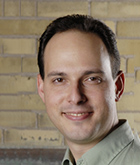
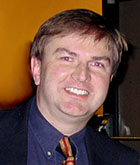

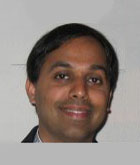
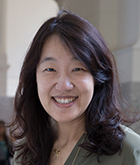
Eyal de Lara
Panel Moderator
University of TorontoRoy Want
GoogleEmiliano Miluzzo
DriversitiSayantan Choudhury
NokiaMinkyong Kim
Samsung -
Towards A Contextual and Scalable Automated-testing Service for Mobile Apps
Li Lyna Zhang (University of Science and Technology of China); Chieh-Jan Mike Liang (Microsoft Research); Wei Zhang, Enhong Chen (University of Science and Technology of China)
-
Separated By Birth: Hidden Differences Between Seemingly-Identical Smartphone CPUs
Guru Prasad Srinivasa (University at Buffalo); Rizwana Begum (Drexel University); Scott Haseley (University at Buffalo); Mark Hempstead (Tufts University); Geoffrey Challen (University at Buffalo)
-
A Practical GPS Location Spoofing Attack in Road Navigation Scenario
Kexiong (Curtis) Zeng (Virginia Tech); Yuanchao Shu (Microsoft Research Asia); Shinan Liu (University of Electronic Science and Technology of China); Yanzhi Dou, Yaling Yang (Virginia Tech)
-
PrIA: A Private Intelligent Assistant
Aruna Balasubramanian, Niranjan Balasubramanian (Stony Brook University); Supriyo Chakraborty (IBM T. J. Watson Research Center); Shashank Jain (Stony Brook University) and Vivek Tiwari (Stony Brook University)

